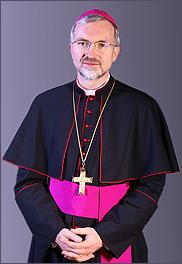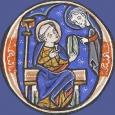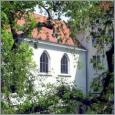 Controlling professors through the Bavarian Concordat (1924)
Controlling professors through the Bavarian Concordat (1924)
Under the Bavarian concordat the bishop can veto all professors of Catholic theology (Art. 5 on the Catholic University) and 21 professors of philosophy, pedagogy, sociology and politics (Art. 3 on concordat chairs). These chairs are 85-90% funded by the state, yet non-Catholics need not apply, nor even a top Catholic scholar who criticised Pope Benedict.
Bishop controls appointment to “concordat chairs”
In the German state of Bavaria the children used to attend state-supported primary schools that were separated into Catholic and Protestant. This divisive systen has been retained in Northern Ireland to this day, due in large measure to the opposition of the Catholic Church. [1] However, in 1968 the people of Bavaria voted in a referendum to abolish separate schooling.
When the Catholic Church was obliged to give up its state-subsidised primary schools in Bavaria, it wanted compensation for its loss of influence on Catholic schoolchildren. To this end the 1924 Bavarian Concordat was revised to add some clauses on Church control of Catholic education. Among these was the creation of “concordat chairs”. These were originally set up in teachers’ colleges to ensure that those who taught the teachers of Catholic religion classes had been approved by the local bishop. However, now many of these teachers' colleges, these professorships at state universities extend Church influence far beyond the teaching Catholic theology.
A “concordat chair” can be occupied only by a professor to whom the local bishop raises “no objection”. It can be in philosophy, pedagogy, sociology or politics, and the approved candidate is expected to teach these academic subjects in line with Catholic doctrine. This even includes “applied philosophy” whose professors train ethics teachers, even though ethics is the alternative for pupils who don’t wish to take religion classes.
Supreme Court refuses top hear challenge to “concordat chairs”
A court case was launched by a non-religious professor who was passed over in her application for a concordat chair in philosophy in favour of someone less qualified. The court found it likely that she was discriminated against because the university of Erlangen-Nurnberg hadn’t waited for the bishop’s veto, but had, on its own, asked the applicants about their religion. [2]
It looked as if this case could ultimately lead to a challenge of the legality of “concordat chairs” themselves, which one of her lawyers says contravenes laws at many levels: the 2006 German anti-discrimination law, the 1949 Constitution and the 2000 Directive of the European Union. [3] However, a way was found to prevent this: the successful candidate withdrew and the university advertised the post anew. With that, in July 2011 the court dismissed the case. [4] After the Bavarian Administrative Court refused to hear the case, and in 2015 the Supreme Court followed. [5]
Theologians even more tightly controlled
When Professor Joseph Ratzinger could no longer take the relative rowdiness of the faculty of dogmatic theology in Tübingen, he withdrew in 1969 to a safe chair of Catholic theology in Bavaria. Such professors are monitored by the Church even more closely, (in fact, continuously), than the occupant of a “concordat chair”. These theology professors also fall under the Bavarian concordat. If at any time the bishop “finds fault” with one of them because of “his doctrine or his moral conduct”, he is to be replaced “irrespective of his rights as a [tenured] civil servant”.
The Vatican set out its requirements for Catholic faculties of theology to conform to Church doctrine in John Paul II's 1979 Sapientia Christiana, which builds upon Canons 815-821. Thus the Bavarian Concordat ensures state cooperation in enforcing Church Law on largely publicly-supported faculties of Catholic theology.
In the last few years, falling university revenues and declining numbers of theology students have led to tiny and costly classes. The Bavarian Government would have liked to close the three smallest Theological Faculties, as it could with any other university department. However, these are regulated by a concordat and the best the Government could get from the Vatican was a concordat revision which allowed the two smallest ones to be “suspended” for 15 years, during which time they are to be used to train religion teachers. [6]
It's even believed that, at least for the teaching of theology, women are not seen by the bishops as acceptable.
The theologian Verena Lenzen from Bonn was rejected by Rome only a few weeks ago as Professor of Moral Theology at the University of Augsburg, and so, too, was the theologian Regina Ammicht-Quinn from Frankfurt — both stood at the first place on list of candidates for the Augsburg Faculty of Catholic Theology. It's no secret that Rome denied the nihil obstat [what is actually meant is the Canonical mission] mainly because both were women. [7]
These clauses of the Bavarian concordat not only ensure doctrinal conformity in the teachers' personal lives, and keep Catholic their teaching completely orthodox, but also ensure that the occupants of “concordat chairs” do not emphasise aspects of the social sciences which might conflict with Catholic doctrine. And this is at state universities.
Bavarian concordat also sets massive state funding for the Catholic University
 The Catholic Church confirmed on 8 May 2008 that it has vetoed the nominee to run the German-speaking world's only Catholic university which is located in Eichstatt. The local bishop had already approved the appointment, but the Congregation of the Doctrine of the Faith (formerly known as the Inquisition) has refused to confirm him in office. The Catholic University is located in Bavaria at Eichstätt. It was formed in 1980 from several pre-existing institutions and its ground rules are set out in the Bavarian concordat.
The Catholic Church confirmed on 8 May 2008 that it has vetoed the nominee to run the German-speaking world's only Catholic university which is located in Eichstatt. The local bishop had already approved the appointment, but the Congregation of the Doctrine of the Faith (formerly known as the Inquisition) has refused to confirm him in office. The Catholic University is located in Bavaria at Eichstätt. It was formed in 1980 from several pre-existing institutions and its ground rules are set out in the Bavarian concordat.
At state universities, the president of the Catholic University is chosen by the university council and then, because it is under “Church administration”, approved by the local bishop. He, of course, of course needs final clearance from the Vatican. The Catholic University’s president is also formally approved by the Minister of Science. However, as was noted in a leading German paper, if this elected politician were to refuse to confirm the chosen scholar there would be an uproar. Yet this Vatican-controlled university costs the taxpayers dear, since according to Article 2.1 of the Concordat with Bavaria, the state pays 85-90% of the University's costs.
The man who until recently was president-elect, Ulrich Hempel, has had a brilliant academic career, but that hasn’t helped him here and the reasons are not far to seek. Hempel left a seminary after five years of training for the priesthood and since then has been married three times. He is also known to be critical of Benedict XVI. In Church circles it is said that “Hempel is not obedient and humble enough”. [8] Now, by means of the 1924 Bavarian concordat, the Vatican can make him pay for this.
Catholic Universities worldwide can be reined in by the Vatican
These universities, despite their state funding, are expected to adhere to Catholic doctrine. This is set out in a document issued by John Paul II in 1990, “Ex Corde Ecclesiae.” It extends the rules governing Catholic Universities which are laid out in Canon Law (Canons 807-814). And the papal edict also permits direct action by the Vatican, stating that the rules of Canon Law apply to Catholic universities “without prejudice to the right of the Holy See to intervene should this become necessary”. (Art. 1.1)
According to this papal edict a Catholic university must practice “adherence to the teaching authority of the Church in matters of faith and morals. Catholic members of the university community are also called to a personal fidelity to the Church with all that this implies.” (# 27) Even when bishops do not enter directly into the internal governance of the university, they should not be “external agents”. (# 28) And “the academic freedom of scholars” can only be exercised “within the confines of the truth.” (# 29) This means that research and teaching cannot be allowed to conflict with Church doctrine (“the truth”). For the overriding aim is that “a Catholic University will contribute to the Church's work of evangelisation.” (Art. 5.1)
In the US the obedience demanded of Catholic universities has led to conflict over their choice of speakers and recipients of honorary degrees. The bishops, with the backing of the Vatican, feel that they have veto power over these honours. They are helped out by a conservative Catholic group, the Cardinal Newman Society, which acts as a whistle-blower, alerting bishops when they find a university stepping out of line. This has already led American Catholic universities to practice self-censorship in their invitations. [9]
In other words, Catholic universities, are expected not to diverge from Church doctrine in their teaching and research, in their choice of speakers, in their awarding of honorary degrees and even in the conduct they permit in the private lives of Catholic employees. If they do not obey the bishops in any of these matters the Vatican reserves the right to rein them in directly. This has been done repeatedly, and in 2012 the procedure was tightened further. When the Pontifical Catholic University of Peru refused to allow the Archdiocese of Lima a seat on its board of directors it was given until Easter 2012 to reform. The university has not backed down. [10]

Bavarian concordat: Art. 3 on concordat chairs
This part of the concordat allows the Church to fire any theology professor whose ideas or conduct displease them. It also sets up professorships at state universities in Catholic Theology, Philosophy and the Social Sciences. Candidates for these positions are vetted by the local bishop.

Bavarian concordat: Art. 5 on the Catholic University
This article was inserted into the Bavarian concordat after 1980, when the Catholic University was founded. In 2001 its name was changed to the “Catholic University of Eichstätt-Ingolstadt”. From the start it was intended to be administered by the Church, but subsidised 85 to 90% by the taxpayer.
Related
♦ How far can German churches discriminate against over a million employees?
♦ Europe tells German churches to respect employees’ private lives
Notes
* Ludwig Volk, “Die Kirche in den deutschsprachigen Ländern” in Handbuch der Kirchengeschichte, 1985, vol. 7, p. 539.
** “Teen expelled from Catholic school for leaving Church”, The Local, Germany's news in English, 30 April 2010. http://www.thelocal.de/national/20100430-26891.html
This concerns the only university-track school in the area, the Kolleg der Schulbrüder Illertissen.
1. “Brady attacks call for school integration: Cardinal Séan Brady has criticised Peter Robinson's call for Northern Ireland’s schools to be integrated into a single state system as ‘a stark warning’ to all respecters of diversity and parents' rights”, Irish Independent, 21 October 2010. http://www.rte.ie/news/2010/1021/137123-education/
“Cardinal defends right of church to have role in State schools: The Archbishop of Armagh and Primate of All Ireland said parents had a right to have their children educated in accordancewith their philosophical and religious convictions and the State had a duty to support this with public funds”, Irish Times, 29 January 2010. http://www.irishtimes.com/newspaper/frontpage/2010/0129/1224263357600.html
For a court ruling that dissents from the Cardinal's assertion, see:
“European Court of Human Rights: No right to state funding for sectarian schools”, Concordat Watch. http://www.concordatwatch.eu/topic-34931.834
“Catholic Church opposes religiously mixed schools in Northern Ireland”, Concordat Watch. http://www.concordatwatch.eu/topic-44371.843
2. “VG Ansbach: Wiederbesetzung eines Konkordatslehrstuhls”, Press release of the VG (Verwaltungsgericht, i.e., administrative court), 4 January 2011. http://www.wkdis.de/rechtsnews/vg-ansbach-wiederbesetzung-eines-konkordatslehrstuhls-193732
3. Gerhard Czermak, Religions- und Weltanschauungsrecht: Eine Einführung, 2008, § 17 Staatlich-kirchliche Einrichtungen, I. Staatliche Theologische Fakultäten und Konkordatslehrstühle, 5. Konkordatslehrstühle, (Manuscript kindly supplied by the author).
According to Dr. Czermak “concordat chairs” contravene constitutional requirements for neutrality by violating separation of church and state (Art. 137 I WRV [Weimar Constitution]/ Art. 140 GG [Griundgesetz]), equal access to public office (Art. 33 III GG and Art. 136 II WRV/ Art. 140 GG) and freedom of scholarship and teaching (Art. 5 III GG). He says that they also contravene the German antidiscrimination law, Allgemeines Gleichbehandlungsgesetz (§ 1, § 3, § 9) and the Antidiscrimination Directive of the European Union.
4. “Verwaltungsgericht Ansbach weist Klage zur Wiederbesetzung eines Konkordatslehrstuhls an der Universität Erlangen-Nürnberg wegen fehlenden Feststellungsinteresses ab Die 2. Kammer des Verwaltungsgerichts Ansbach”, Press release of the VG (Verwaltungsgericht, i.e., administrative court), 28 July 2011. http://www.vgh.bayern.de/VGAnsbach/documents/09-2011.pdf
5. “Bundesverfassungsgericht lehnt Verfahren zu Konkordatslehrstühlen ab”, 4 November 2015. http://hpd.de/artikel/12373
6. “The Holy See has completed formal ratification of a new concordat with Bavaria, governing the teaching of Catholic theology in the German state”, Catholic Culture, 11 June 2007. http://www.catholicculture.org/news/features/index.cfm?recnum=51715
“Neuordnung für Katholisch-Theologische Fakultäten in Bayern: Zusatzprotokoll zum Bayerischen Konkordat in München unterzeichnet”, Diocese of Wuerzburg, signed 19 January, ratified 8 June 2007.
 5. Hermann Münzel, “Nur Taten zählen, nicht Worte”, Kritischer Journalismus in der Kirche! (issued by the Department of Catholic Theology, University of the Saar), Volume 2, April 2000. http://www.phil.uni-sb.de/projekte/imprimatur/2000/imp000201.html
5. Hermann Münzel, “Nur Taten zählen, nicht Worte”, Kritischer Journalismus in der Kirche! (issued by the Department of Catholic Theology, University of the Saar), Volume 2, April 2000. http://www.phil.uni-sb.de/projekte/imprimatur/2000/imp000201.html
7. Christine Burtscheidt, “Eichstätt und der Vatikan / Uni-Präsident scheitert an Rom / 'GAU der katholischen Kirche’: Warum sich die Universität Eichstätt nach einem neuen Präsidenten umschauen muss”, Sueddeutsche Zeitung, 7 May 2008. http://www.sueddeutsche.de/bayern/artikel/877/173362/
8. Laurie Goodstein, “New Fight on a Speaker at a Catholic University”, New York Times, 16 May 2012. http://www.nytimes.com/2012/05/17/us/new-fight-on-a-speaker-at-a-catholic-university.html
9. “Pontifical university claims conformity with Vatican directive”, Catholic News Agency, 4 April 2012. http://www.catholicnewsagency.com/news/pontifical-university-claims-conformity-with-vatican-directive/
10. “Cardinal versus the Catholic University”, Concordat Watch. http://www.concordatwatch.eu/topic-48198.834
Other sources
“About the Catholic University of Eichstätt-Ingolstadt” [University website] http://www.ku-eichstaett.de/ECTS/uni.en
“Catholic Church vetoes German university appointment”, DPA (Deutsche Presse-Agentur), The Earth Times, 8 May 2008. http://www.earthtimes.org/articles/show/204175,catholic-church-vetoes-german-university-appointment.html
Guido Horst, “Eichstätter Systemfehler : Rom hat Bedenken gegen neuen Hochschulpräsidenten – Amtseinführung abgesetzt”, Die Tagespost, (“Katholische Zeitung für Politik, Gesellschaft und Kultur”), 12 April 2008. http://www.die-tagespost.de/Archiv/titel_anzeige.asp?ID=39592
Christine Burtscheidt , “Uni Eichstätt und der Vatikan / Unfreie Wissenschaft / Rom stellt sich quer: Warum der Vatikan einen Führungswechsel an der Eichstätter Uni blockiert”, Sueddeutsche Zeitung, 23 April 2008. http://www.sueddeutsche.de/bayern/artikel/464/170963/
Christine Burtscheidt , “Rektor-Wahl an der Uni Eichstätt : Öffentliche Demontage”, Sueddeutsche Zeitung, 7 May 2008. http://www.sueddeutsche.de/bayern/artikel/994/173479/
“Konkurrentenklage bei einem Konkordatslehrstuhl”, Rechtslupe, 12. April 2011. http://www.rechtslupe.de/verwaltungsrecht/konkurrentenklage-bei-einem-konkordatslehrstuhl-328302







